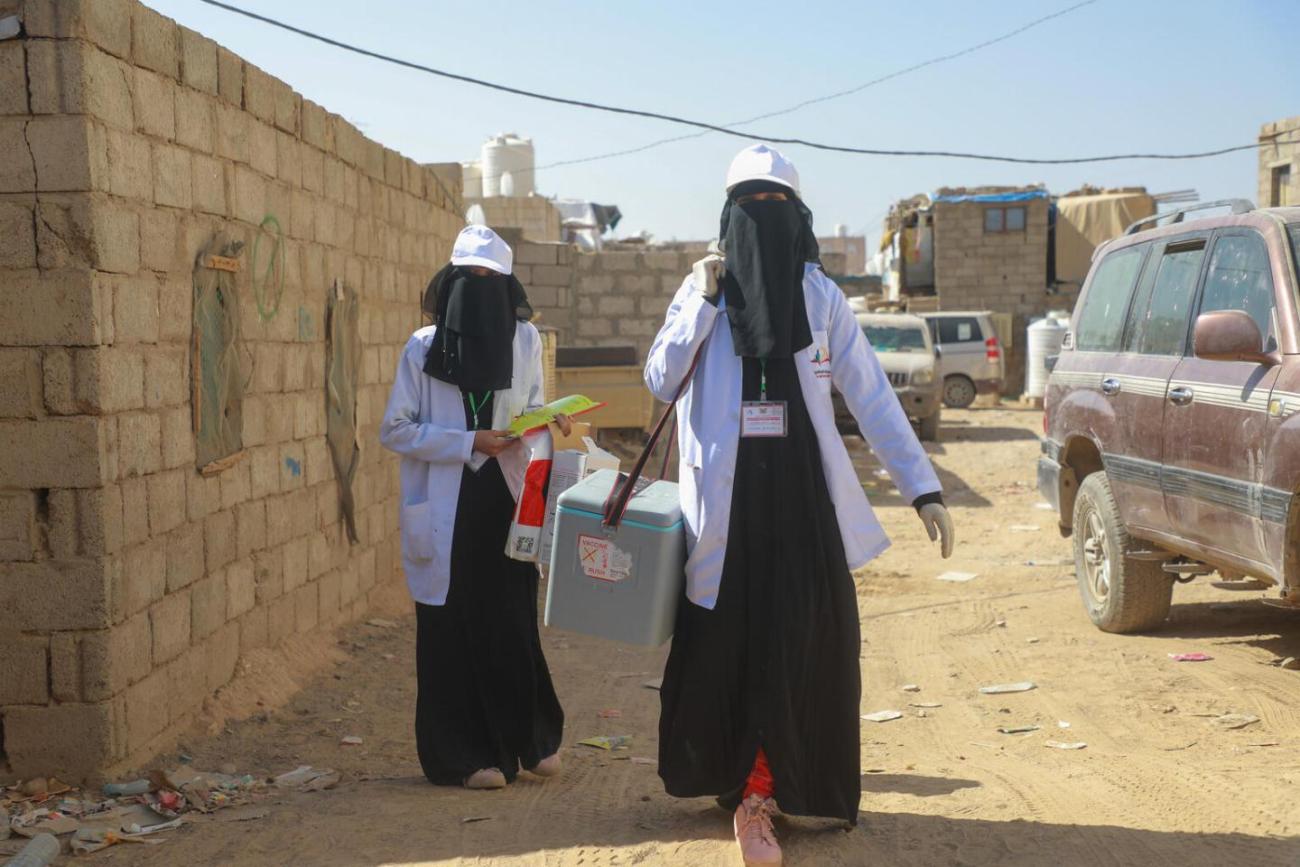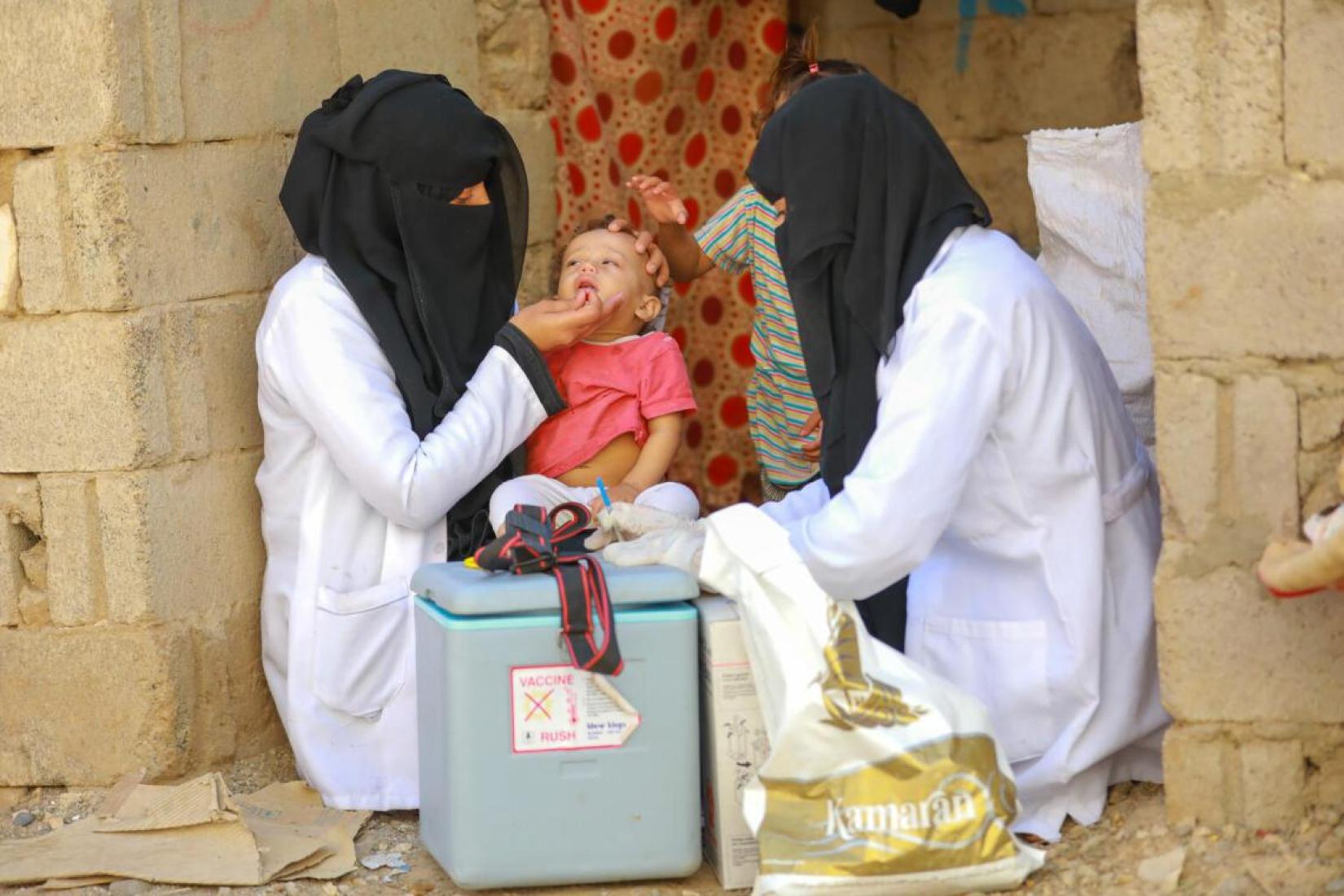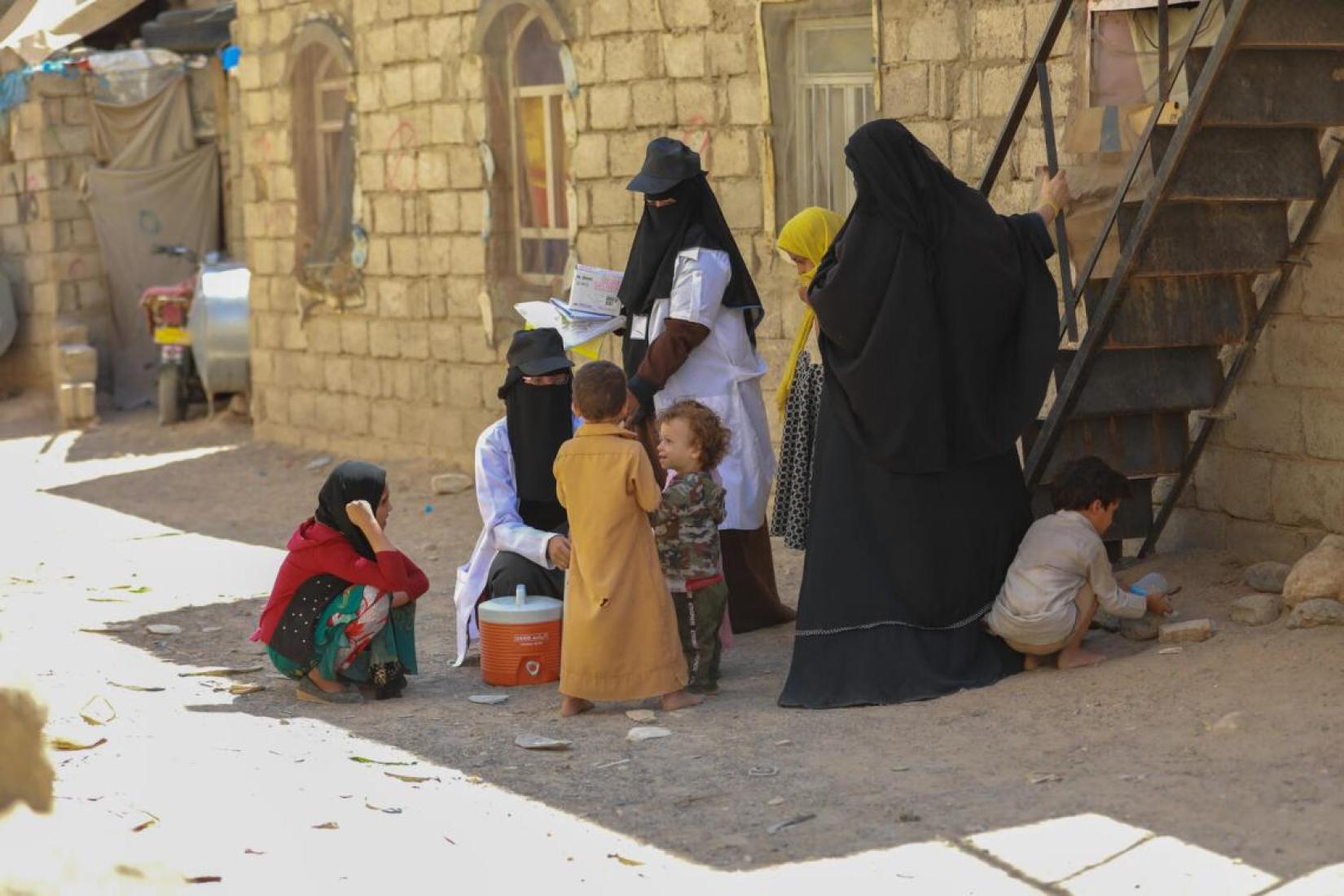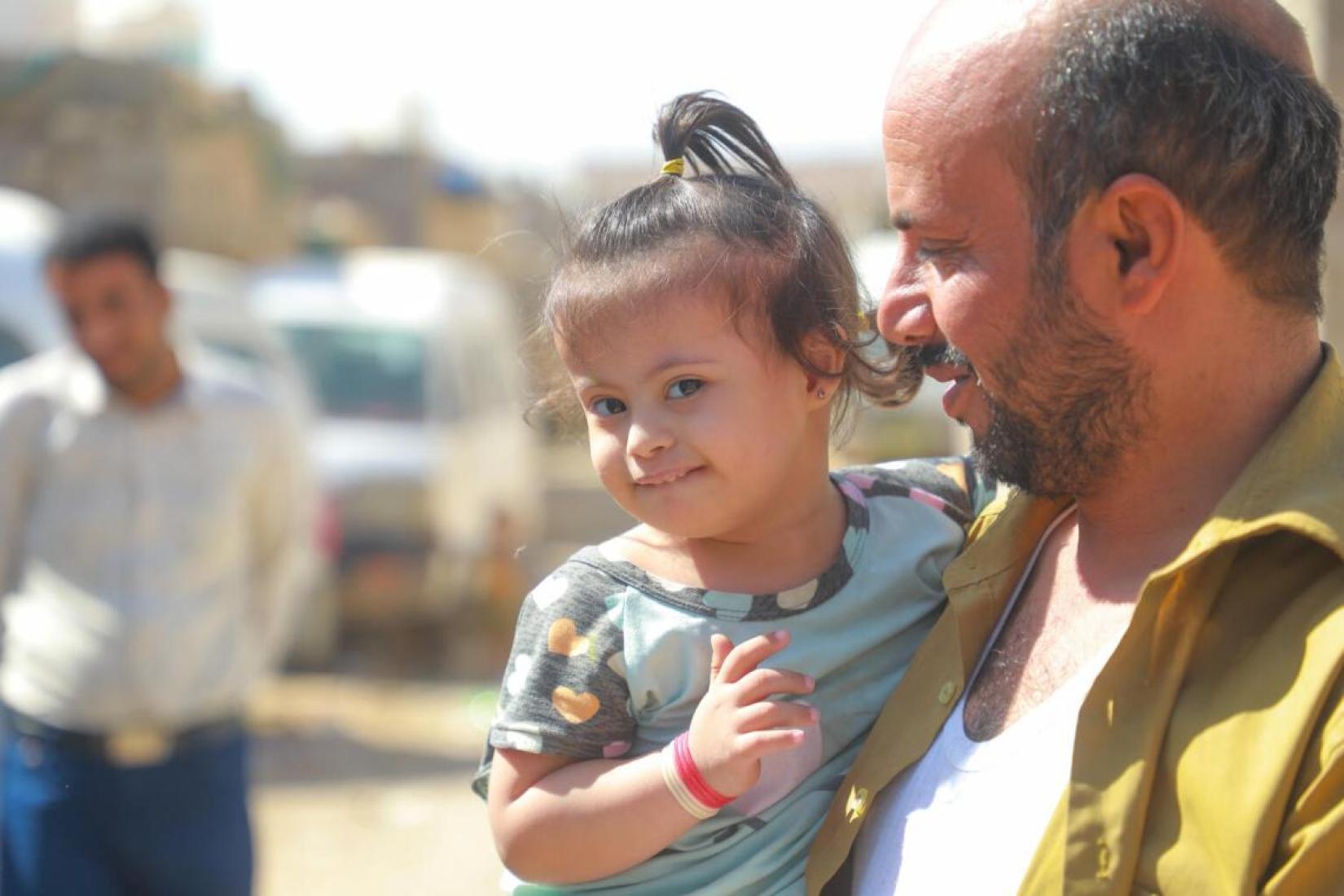Protecting Children, Protecting the Future Generation

Thousands of Yemenis do not receive qualified medical help, which inevitably leads to a general deterioration of the health situation in the country
“I encourage parents to vaccinate their children as they are the ones responsible for their children’s health”, says Bakil Ali Mohammed Al Awa, a father of five, who has been displaced from Hajjah to Marib, in Yemen.
With many other displaced families, Bakil and his children live today in the Community College Camp in Al Rawdah, Marib. The long-lasting military conflict in Yemen has forced thousands of people to leave their homes and move to camps for displaced persons and remote villages.
Displaced persons numerous challenges such as the lack of healthy food, unclean water, and unsanitary living conditions. Since the war has had a strong impact on the country’s healthcare system, thousands of Yemenis do not receive qualified medical help, which inevitably leads to a general deterioration of the health situation in the country.
“Due to overcrowding, informal housing and poor sanitation in camps, the health situation is becoming tragic,” says Dr. Abdulkareem Al Hogaeli, one of the 10 district supervisors deployed for the polio vaccination campaign supported by UNICEF. “We target 4,500 beneficiaries in the camp, mostly children between the age of six months and 15 years,” he adds.

The inaccessibility of health centres and lack of qualified personnel are not the only reasons why thousands of children in Yemen remain unvaccinated and therefore at risk of deadly diseases like polio.
“Many children don’t get vaccinated because families don’t know about the vaccine or the disease,” the supervisor explains.
This is why the Immunization Campaign targeting 149 Internally Displaced Persons camps is also committed to educating parents about the risks of diseases like polio or measles, and about the benefits of vaccines for children.
“We explain to parents that prevention is better than cure, and that vaccines will stop diseases from spreading”, says Sarah Saad Saleh, one of the 560 health workers who work for the polio and measles immunization campaign with UNICEF.

“Within this camp, there are four mobile teams going from one house to another. Every day, we vaccinate up to 170 children,” says Dr. Abdulkareem Al Hogael. “Children are at risk of epidemic diseases due to the poor health situation in the province and the absence of sanitation inside this camp”, he explains, enhancing the importance of the mobile teams’ mission.
“No one wants to see their child sick,” adds another volunteer health worker. “When parents see that vaccines help, they gladly accept our assistance and encourage neighbors to vaccinate their kids.”
The ongoing vaccination campaign has deployed 280 mobile teams that targeted over 100,000 children.

“I am so proud that the mobile team for immunization has visited our camp, and I vaccinated my children,” says Bakil Ali Mohammed, looking at his daughter Salma with a smile.

